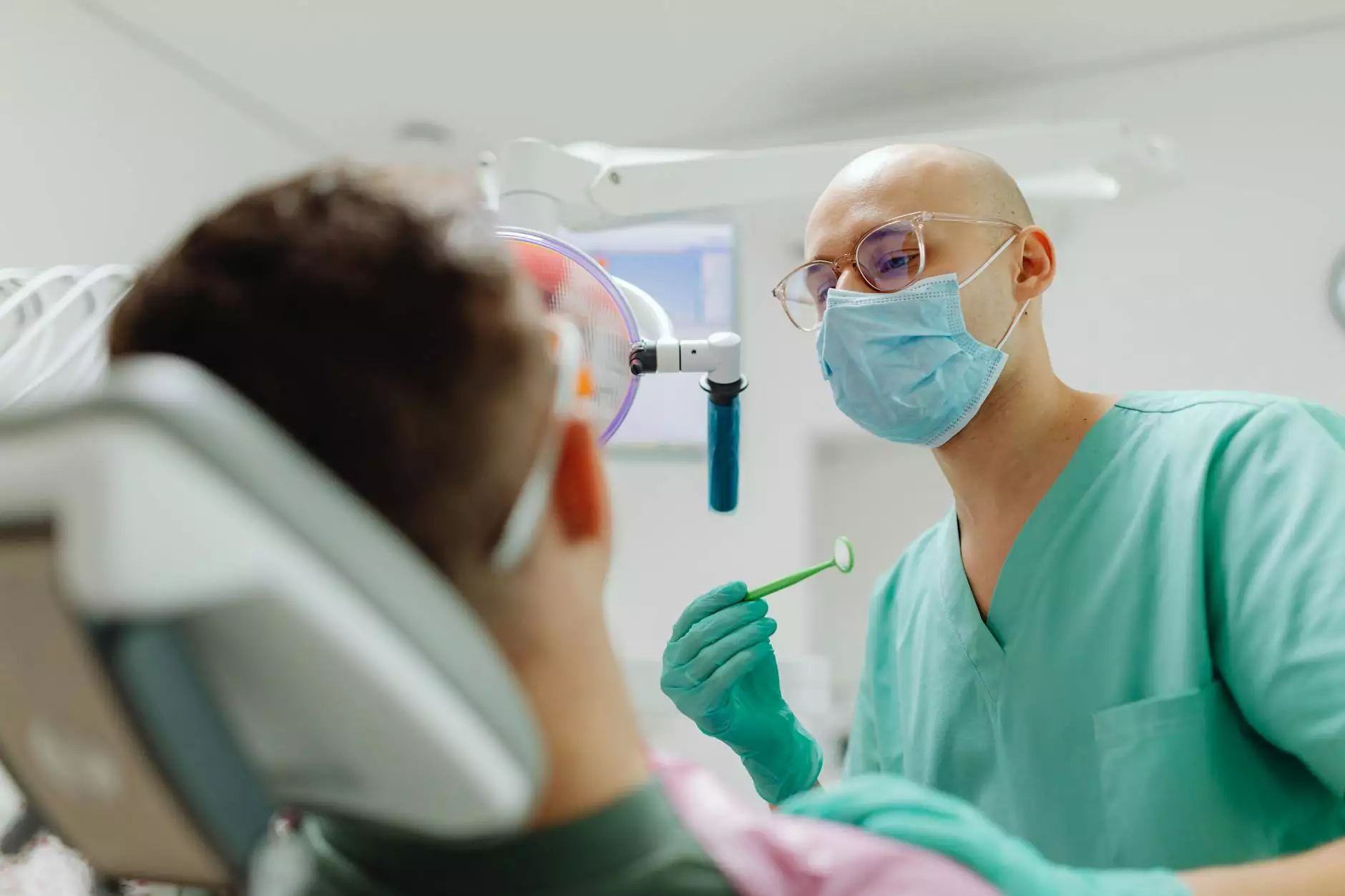Comprehensive Guide to Practice Dental

Practicing dental care is crucial for maintaining excellent oral health and preventing various dental issues. In today's fast-paced world, understanding the fundamentals of dental practices can help individuals make informed decisions about their oral health. This article delves deep into the various elements of practice dental, covering essential tips, best practices, and how to find the right dentist for your needs.
The Importance of Dental Care
Dental care is not just about filling cavities or whitening teeth; it encompasses a broad spectrum of practices aimed at ensuring optimal oral health. Regular dental check-ups and practice dental techniques can significantly influence your overall health and quality of life.
- Prevention of Oral Diseases: Regular dental visits can help in the early detection of issues like cavities and gum diseases.
- Overall Health Connection: Studies show a correlation between oral health and systemic conditions such as heart disease and diabetes.
- Enhanced Self-Esteem: A healthy smile greatly improves confidence levels and fosters better social interactions.
Understanding General Dentistry
General dentistry is the primary dental care provider that covers a wide range of services. When we talk about practice dental, general dentists play a key role in maintaining oral health.
Key Services Offered by General Dentists
General dentists provide various services, including:
- Routine Check-ups: Regular examinations for oral health assessment help in early detection of dental problems.
- Cleanings: Professional cleanings are vital in removing plaque and tartar buildup that regular brushing cannot eliminate.
- Fillings: Treatment for cavities includes filling cavities with materials like amalgam, composite, or resin.
- Extractions: In cases where teeth are damaged or decayed, extraction may be necessary to prevent infection or pain.
- Root Canals: These procedures save severely infected teeth and help maintain natural function.
- Cosmetic Dentistry: Services such as whitening, veneers, and bonding enhance the aesthetics of your smile.
Choosing the Right Dentist for Your Practice Dental Needs
Choosing the right dentist can significantly affect your practice dental experience. Here are several tips to help you find the right dental professional:
Evaluate Credentials and Experience
Check the dentist’s qualifications, including their education, training, and licenses. An experienced dentist is more likely to provide effective care.
Consider Specializations
Some dentists specialize in areas like orthodontics, pediatrics, or cosmetic dentistry. Depending on your specific needs, consider seeking a specialist.
Seek Reviews and Recommendations
Online reviews and personal recommendations can provide insight into the quality of care and the patient experience at a dental practice. Look for testimonials that highlight:
- Commitment to patient care
- Quality of treatment
- Office environment and staff friendliness
Visit the Dental Practice
Bearing a personal visit will allow you to gauge the atmosphere of the practice. Pay attention to:
- The professionalism of staff members
- Hygiene and cleanliness of the facility
- The availability of modern dental technologies
Effective Oral Health Practices
Implementing an effective oral health routine can significantly enhance your dental health. Below are standard practices to incorporate into your daily life:
Brush and Floss Daily
Brushing your teeth at least twice a day and flossing daily removes food particles and plaque, which can lead to cavities and gum disease.
Use Fluoride Toothpaste
Fluoride strengthens tooth enamel and provides essential protection against decay. Ensure your toothpaste contains fluoride for maximum benefits.
Maintain a Balanced Diet
Your diet plays a significant role in oral health. Reduce sugar intake and include foods rich in vitamins and minerals like:
- Dairy Products: Sources of calcium and phosphorus
- Fruits and Vegetables: Crunchy textures can aid in cleaning teeth naturally
- Whole Grains: Better for overall dietary health
Stay Hydrated
Drinking plenty of water helps rinse away food particles and maintains saliva production, which is vital for neutralizing acids in the mouth.
Avoid Tobacco Products
Tobacco use can lead to various dental problems, including gum disease and oral cancer. Quitting smoking has immediate and long-term benefits for your dental health.
Common Dental Problems and Their Solutions
Being informed about common dental issues and their solutions can help you manage your oral health effectively. Here are some prevalent problems:
Cavities
Cavities occur when tooth enamel breaks down due to acid produced by bacteria. Regular check-ups and good oral hygiene practices can effectively prevent cavities. If a cavity forms, treatment typically involves:
- Fillings: To restore the tooth structure.
- Crowns: In cases of severe decay.
Gum Disease
Gum disease starts with plaque buildup leading to inflammation. Early-stage gum disease (gingivitis) can often be reversed with improved oral care, while more advanced stages may require professional treatment such as:
- Deep Cleaning: Scaling and root planing procedures.
- Surgery: In severe cases to restore gum tissue.
Tooth Sensitivity
Tooth sensitivity can make eating and drinking discomforting. Solutions may include:
- Specialized Toothpaste: Desensitizing toothpaste designed to reduce discomfort.
- Fluoride Treatments: Professional fluoride applications can strengthen enamel.
Conclusion: Making Practice Dental a Priority
In conclusion, practice dental is not only about visiting the dentist but also about incorporating effective oral health practices into your daily life. From choosing the right dentist to maintaining a consistent dental hygiene routine, each step plays a significant role in achieving optimal dental health. Remember, making dental care a priority today can lead to a healthier, brighter smile tomorrow. Don’t hesitate to reach out to your local dental practice, like Woburn Sands Dental Practice, for personalized care tailored to your needs.



